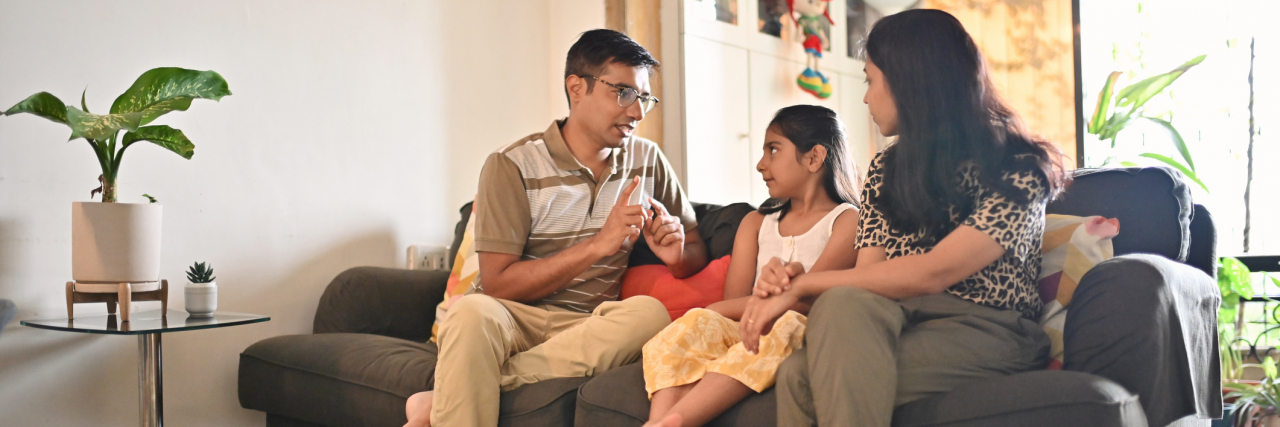A Pandemic Silver Lining: Parents Can Now Better Spot Mental Health Struggles in Their Children
In so many ways, the pandemic has been harmful to our collective mental health; however, in some ways, it has also been a gift. Many parents find that they are now better able to spot mental health concerns with their children after their children have been in remote learning. I had the pleasure of speaking with Dr. Anisha Patel-Dunn, the Chief Medical Officer of LifeStance Health, about this phenomenon and I am excited to share my interview with her with you. The pandemic has been harmful in so many ways, but I am excited to see how much more we now know about mental health and how much more we care.
Ashley: What impacts are you seeing from the extended period of time that parents and kids spent at home together during the pandemic? What have the positive outcomes been? Negative?
Dr. Patel-Dunn: The ongoing pandemic had a major impact on mental health at all ages, particularly for youth and adolescents who experienced isolation at a time of pivotal developmental importance. For children who are participating in remote school vs. in-person learning, that lack of social interaction and validation from peers can be a contributing factor to feelings of isolation, loneliness, and stress.
Ashley: We also know that children’s stress affects the whole family. Recent data points to 77% of parents saying they feel stressed in response to their children’s mental health challenges, not to mention the mental health challenges that parents themselves are also facing. The leading challenges included work (45%), school (41%), and making new friends (36%).
Dr. Patel-Dunn: While the pandemic has contributed to a true mental health crisis, I think one of the silver linings is that it has forced a national conversation about the destigmatization of mental health and encouraged parents, caretakers, and family members to have open and honest conversations with youth.
Ashley: What effect has missing life milestones/events
had on kids/teens?
In just three short years, lifetime memories such as birthday parties, graduation ceremonies, proms, and family gatherings (especially with grandparents) that should have been made and cherished were put on pause or canceled altogether. Developmentally, dealing with the fallout of missed life milestones can be anxiety-provoking for some children. For example, if they entered the pandemic in eighth grade, they may not be returning to a full-time in-person learning environment until they are sophomores in high school. Reentering the world at a different stage of life after adjusting to remote learning has exacerbated children’s stress and anxiety levels.
Ashley: Have you seen an uptick in parents that are patients wanting to discuss their children’s mental health in sessions in the past two years? Has this prompted many of them to find a therapist for their child instead of trying to “therapize” them as a parent?
Dr. Patel-Dunn: About 84% of parents who sought help said their family now openly talks about their therapy sessions, and 37% believe that therapy has helped them feel closer to their family than ever before.
Ashley: How can parents who have sought therapy for their kids best support them through this journey, especially if they aren’t in therapy themselves? What can they do to respect their privacy and boundaries?
Dr. Patel-Dunn: It’s important to encourage the destigmatization of mental health and remind our kids that they don’t need to be shy or embarrassed and that everyone needs support in different ways. Making mental health a topic of conversation from a young age can help to encourage them to prioritize it throughout their life.
Ashley: How can parents ensure they are keeping tabs on their kids’ mental health? Are there daily check-ins or questions they can be asking?
Dr. Patel-Dunn: Parents should encourage open conversation about mental health, and model that behavior whenever possible. Eight in 10 parents who have sought help said their family talks openly about their therapy sessions, and 37% believe that therapy has helped them feel closer to their family than ever before. Half of parents talk to their child about mental health at least a few times a week, if not daily.
Ashley: How would you recommend approaching the conversation around mental health struggles with adolescents who might be more closed off or shy in their reaction?
Dr. Patel-Dunn: Mental health is no less important than physical healthcare, and just like when your child is feeling sick or experiences an injury, their primary care doctor would help them to heal and feel better. Mental health is no different, and it’s important to address it with the same importance you would a physical symptom.
Ashley: Are there specific tips or advice you have for parents who are unsure if their kid needs therapy? What would you tell parents who are more hesitant?
Dr. Patel-Dun: If it’s crossing your mind that speaking with a mental health professional may help your child, I’d recommend scheduling an appointment. More specifically, if you notice your child is not enjoying the activities they used to, or showing changes in sleep schedule, social anxiety, increased irritability, changes in appetite, or any behavior that seems out of character, it’s a sign to get help.
Ashley: What would you like to see from healthcare providers, parents and teachers coming out of the pandemic? How can they best support kids as they navigate this new reality?
Dr. Patel-Dunn: The mental health crisis was present long before the pandemic, though the global sense of isolation put a spotlight on it like never before. While the pandemic is still ongoing, as normal experiences continue to resume it’s important that the attention to mental health care doesn’t ebb. Mental health is a critical part of any wellness routine and should be treated as such by any adult in a child’s life.
Getty image by Mayur Kakade

